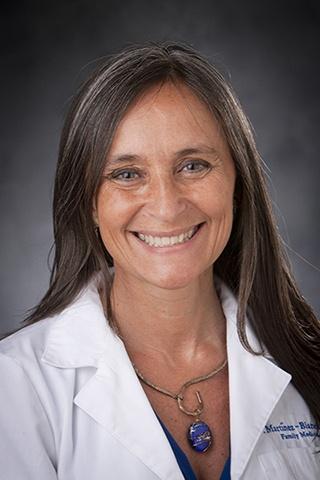This past May 19 was WORLD Doctors’ Day, and WONCA, the World Organization of Family Doctors, suggested that for 2018 we all highlight the role and contribution of family doctors in health care systems around the world.
What can we celebrate here at Duke Family Medicine?
Every member of our team — doctors, nurses, physician assistants, medical assistants, social workers and staff — contribute to improving health in Durham through comprehensive, continuous, competent and holistic care for people of all ages at the Duke Family Medicine Center.
Yet, since this was a call to the contributions of family doctors, I will highlight some of our activities:
- As I walk down the hallways of our busy clinic, I hear Dr. Joyce Copeland say goodbye to one of her patients; Joyce will be retiring in December. Wealthy in knowledge and wisdom, Joyce has been a member of the Duke family since she arrived to do her residency training in 1975. She has delivered the grandchildren of her initial patients, and has seen more people than anyone else at our clinic. We all benefit from her wit, enthusiasm and ever-lasting ability to innovate, earn and teach.
- In the next room, Dr. John Ragsdale leads a resident through a colposcopy; I can imagine the squamous-columnar junction in the monitor, as he and the resident decide if the patient requires a biopsy.
- Behind the next door, I can imagine Dr. Sameer Sood doing an osteopathic manipulation to a person with a sore back, under the supervision of Dr. Teah Bayless. “What level of pain do you have now?” “It has gone from a 7 to a 3,” the patient says. I can imagine the relief the patient feels when a doctor with osteopathic skills has been able to relieve the pain without pills.
- In another room, Dr. Jonathan Jimenez explains healthy food choices in Spanish to a family with people suffering from the consequences of diabetes.
- Dr. Cerrone Cohen addresses mental health care, integrating mental health in primary care both through clinical care and education of residents and colleagues.
- Dr. Lorraine Sease manages our clinical practice, keeping quality improvement front and center, and teaching these skills to students and residents.
- Dr. Tiffany Covas delivers babies at Duke Regional Hospital and works with Dr. Jessica Lapinski to develop a Patient-Centered Medical Home for the LGBTQ+ community.
- Dr. Donna Tuccero promoting CenteringPregnancy® as a vehicle to improve health outcomes for all pregnant moms, and in particular for black women and their babies.
- Dr. Bayless improves the ability of low income elderly to live in a home and avoid institutionalization through the Just for Us program.
- Dr. Everlyn Perez works as population health chief resident, addressing curricular needs.
- Dr. Nancy Weigle works with undergraduate medical education at Duke, showing family medicine’s highest standards of clinical care, pedagogy and professionalism to medical students at Duke.
- Dr. Kenny Railey, assistant chief diversity officer in the School of Medicine’s Office of Diversity and Inclusion and director of diversity and inclusion in our department, addresses workforce equity, health disparities and social determinants of health in undergraduate education.
- Dr. Will Bynum contributes to understanding burnout and feelings of shame by physicians and trainees.
- We contribute nationally through The Practical Playbook and the work being done by Drs. Lloyd Michener and Mina Silberberg, and through my work with Family Medicine for America’s Health.
- Dr. Anthony Viera shares his knowledge and expertise on primary care, epidemiology, evidence based medicine, and family medicine in the Physician Board at the American Health Council; and through research in hypertension from a primary care perspective
Our residents contribute locally through excellent clinical work in the hospital, the clinics, and the community. They contribute nationally through their work with national organizations, like Dr. Alexa Mieses representing residents to the AAFP Board of Directors, and Dr. Alexa Namba contributing to immunization awareness for teens. Drs. Jimenez and Mansi Shah addressing racism in medicine at the national conference of residents and students, Drs. Lapinski, Sam Fam and graduate Dr. Aaron George presenting on health equity at the the ACOFP. Internationally Dr. Fam has facilitated leadership and procedures training workshops at the Wonca Iberoamericana regional meeting, and Dr. Perez caring for people in Bolivia.
We contribute internationally through the work I do with WONCA around the world and representing the values of family medicine to the World Health Organization, and through the family medicine seminar at the Austrian American Foundation Open Institute in Salzburg.
The examples are abundant. And what is most important is the pride and care that goes in each one of our multiple activities.
Family medicine strong.
